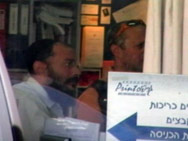

Child Molester and Sodomizer Avrohom Mondrowitz MUST BE BROUGHT TO JUSTICE NOW!
Case of Rabbi Avrohom Mondrowitz, M.Sc., Ph.D., L.N.H.A
(AKA: Abraham Mondrowitz, Avremel Mondrowitz)
Chicago, IL, Brooklyn, NY, Jerusalem, Israel
"Brooklyn District Attorney Elizabeth Holtzman's office said Mondrowitz was named in a December 3, 1984, arrest warrant charging him with two counts of sex abuse". Rabbi Avrohom Mondrowitz worked in special education school for boys in Brooklyn, that had connections with Ohel Children and Family Services in Brooklyn, New York. He was responsible for about 20-25 young children who already had either emotional problems and/or learning disabilities.
Avrohom Mondrowitz is originally from Chicago, the son of a highly respected rabbi. He is about 55 years old, and resides in Jerusalem, Israel. The Awareness Center is currently asking for help locating articles and photographs. If you have any, please contact www.the
Former New Yorker Avrohom Mondrowitz has built a quiet, comfortable life as a college professor in Jerusalem. The syllabus for his business administration course at Jerusalem College of Engineering is posted on the Web, along with his phone number.A reliable source says: "Rabbi Ben Zion Sobel is not the all-time worst rabbi-predator. It's Rabbi Avrohom Mondrowitz. "He called himself a rabbi and a psychologist. He'd speak at highschools. He was a cool hip outgoing rabbi before kiruv (outreach) became a household name. This guy was going out there in the trenches and working with kids no one else was working with. Apparently he was working them to his own satisfaction. "He told this yeshiva high school that Judaism said masturbation was absolutely fine, which is weird as almost no Orthodox rabbi will say that and the Torah has traditionally been interpreted as condemning masturbation. "When Rabbi Mondrowitz worked a room, he knew right away which kids he should go after -- the kids who were lonely, he befriended them. "Rabbi Mondrowitz worked with the orphanage Ohel in Brooklyn. He was counseling for them. Eventually there were charges brought against him and about 20 years he ran away from America to Israel. When he got to Israel, signs went up all over the place warning people against him. There were counter-protests that the charges were not true. That you should not spread gossip. And Rabbi Mondrowitz settled down to a nice life in Israel. He can't go back to America without facing arrest." From http://www.theawarenesscenter.org/ Rabbi Ordered Out Of Israel To Face Abuse Charges In USThe Associated Press (Boston Globe) - March 19, 1987
TEL AVIV -- The government has ordered the expulsion of a self-styled rabbi who has been charged in New York with sexually abusing a 10-year-old boy under his care, the interior minister said yesterday. Israeli-born Abraham Mondrowitz, 40, has denied wrongdoing. His Israeli attorney, David Ofek, said the child molesting charge was an "ugly libel." Mondrowitz is not in custody in Israel, and his whereabouts was not immediately known. ========================================================== By Stephanie Saul - Staff Writer Newsday - May 28, 2003 Last in a series.
Former New Yorker Avrohom Mondrowitz has built a quiet, comfortable life as a college professor in Jerusalem. The syllabus for his business administration course at Jerusalem College of Engineering is posted on the Web, along with his phone number. Mondrowitz is living so openly, it's hard to believe the psychologist and self-styled rabbi is wanted for allegedly sexually abusing four Brooklyn boys, ages 10 to 16. The charges against him include sodomy. "I don't want this hydra to lift its head again," said Mondrowitz, declining to discuss his 1985 indictment on 13 counts. Once the host of a radio program in Brooklyn, Mondrowitz will be arrested should he ever re-enter the United States, according to the office of Brooklyn District Attorney Charles J. Hynes. But according to U.S. Justice and State department documents, Hynes' office approved a decision in 1993 to drop efforts to extradite Mondrowitz, a U.S. citizen who has been sheltered by the Israeli government since he fled the United States in 1985. Michael, a New Jersey attorney who obtained the federal documents after years of research on the Mondrowitz case, said the decision to drop efforts to return Mondrowitz to the United States is an embarrassing one, considering the severity of the charges. A spokesman for Hynes, Jerry Schmetterer, was at a loss to explain the decision. "We don't know anything about the State Department closing its file," said Schmetterer, calling the federal records a "mystery." "We have nothing in our files to indicate we ever made that decision," said Schemetterer, emphasizing that the Mondrowitz file is still kept in a prosecutor's desk in the event Mondrowitz ever returns from Jerusalem. Escape to Israel is merely one of the factors that can hamper prosecution of alleged sex abuse in the Orthodox community. Police and prosecutors find that victims of alleged sexual abuse in those communities are discouraged from coming forward. Intense pressure is often brought to bear on complainants who bypass rabbinical courts -- the community's preferred method of settling disputes -- and instead go to secular authorities. Witnesses, who are often young, become fearful and wavering. And prosecutors face pressure from a community that votes as a cohesive block. One woman, whose son was called to testify about an alleged instance of abuse, said that extraordinary pressure was placed both on her family and on the family of the alleged victim. "I had rabbis coming by. They threatened we'll have curses in our family. It might sound silly to you, but it was very frightening," said the woman. She said that rabbis supplied her with a statement from a psychologist who had never examined her son, saying he was not fit to testify. In Brooklyn, with its large Hasidic community, police have been confounded by the outcomes of some cases they investigated involving the Hasidim. At a loss to explain the cases, some cops in the 66th Precinct, which includes Borough Park, have shrugged their shoulders and paraphrased a line from the Jack Nicholson film "Chinatown" -- "Forget it, Jake, it's Brooklyn." One of those who recalls making the remark was retired police Capt. William Plackenmeyer, who worked for many years in Brooklyn. "In Brooklyn, it almost seemed like there were two penal codes, one for the Hasidic community and one for everyone else," Plackenmeyer said. But Hynes' office says decisions on prosecutions are made without regard to political considerations or community pressure. "We prosecute sex crimes. We prosecute allegations of child abuse, sex abuse," said Schmetterer. "Trained investigators conduct these investigations and come to a conclusion. They make the decision." The arrest of a popular rabbi in the Bobox Hasidic sect in January 2000 provides another example of the pressure that can be placed on those who complain to outside officials. In that case, a 9-year-old boy accused the Brooklyn rabbi, his tutor, of physically and sexually abusing him. In the end, Hynes' office threw out all charges against Rabbi Solomon Hafner. Schmetterer said they were found to be baseless. But before the case was resolved, the police assigned 24-hour protection to the complainant's family, according to a law enforcement source. The family had been threatened by members of the Bobov community, the source said. "They excoriate the victim, they run them out of the community, they make sure the victim will never marry," said sociologist (Name Removed), who, with Michael, researched the Hafner case and frequently writes about domestic abuse in the Orthodox community and provided documents for this article. The boy's family later moved from Brooklyn to the quieter Bobov community in Monsey. The family would not talk to Newsday, but a friend said the move was an effort to escape community pressure. While Hynes' office was examining the boy's allegations, the Bobov community convened a rabbinical court, a bet din, to conduct its own investigation. The child's uncle later complained that rabbis on the bet din had asked the family to sign a document saying the boy was crazy so that they could get the criminal case thrown out. Several members of the bet din either did not return calls from Newsday or declined to discuss the religious court's proceedings. Meantime, according to the law enforcement source, Bobov rabbis appeared in Hynes office' to plead in Hafner's defense. Hynes' spokesman Schmetterer would not confirm or deny that such meetings took place, but he said it is not unusual for Hynes' office to meet with community leaders on cases. After the bet din decision, the five-member panel posted notices throughout Borough Park clearing Hafner. "Rabbi Hafner's comportment with [the child] has been in complete accordance with both Torah law and the law of the land, and a parent should not hesitate to engage Rabbi Hafner as a tutor for his/her child." With intense pressure from the community common in such cases, families also come under indirect pressure not to go public with their cases. The social stigma attached to being the victim of sexual abuse in the general public is magnified within the Hasidic community, sources said, so much so that Hasidic victims can find it difficult to marry within the community. And, as with sex-abuse allegations generally, parents fear causing further psychological damage to their children by placing them on the stand. In 1995, for instance, Hynes' office charged Rabbi Lewis Brenner with repeatedly sexually abusing a boy starting in 1992 and ending in 1995, when the boy, then 15, told police. Among other places, the alleged encounters occurred in the bathroom of the rabbi's Brooklyn temple. In a statement to the court, the boys' devastated parents said he could not even attend school, he was so troubled by "a raging cyclone of hate." "Our son is with us physically today, but his self-respect, dignity and sense of worth were stolen from him at the tender age of 12," the boys' parents said. "Do you realize that you destroyed a world and our family, Mr. Brenner? You have stolen from our son the very essence of his life, his hopes, dreams and aspirations for the future." The charges against Brenner initially included 14 counts, including sodomy, sexual abuse, and endangering the welfare of a minor. But a plea agreement whittled the charges down to one felony, stunning a Brooklyn judge. "Given the nature, gravity and frequency of the sexual contact alleged in the felony complaint, this court was surprised by the People's plea offer and requested of the prosecutor a statement why it was forthcoming," said acting Supreme Court Justice Charles J. Heffernan in a court ruling. The district attorney's office told the judge that the boy's family agreed to the plea bargain ... Recently, an official of the district attorney's office said the family did not want to go through with a trial. The plea arrangement left Brenner a free man -- he got 5 years probation. Brenner is the father-in-law of Ephraim Bryks, a Queens rabbi who was the subject of a story in Newsday on Tuesday. Two teenagers told Canadian police years ago that Bryks abused them when they were youngsters. Bryks has never been charged with a crime and has denied the allegations. After Brenner's plea deal, he asked the court to exempt him from the sexual abuse registry on grounds that his behavior occurred before the law was passed. Heffernan refused. ====================================== Silence of the LamAccused of sexually abusing young boys, a Brooklyn rabbi lit for Israel 22 years ago. Now one alleged victim wants him brought back for trial. by Kristen Lombardi | |
Abe was eight years old, the defiant son of a devout Orthodox Jewish family who was sent to the child psychologist in Borough Park, Brooklyn. Every Sunday for four months in 1984, he'd go for counseling in the modest house on 60th Street. Sessions started with talk of his behavior—his mischief at home, his disobedience at yeshiva. Goals were set, rewards promised. Then, Abe alleges, the psycho- logist's hand would be in his underwear.
"He would fondle and play with my genitals," says Abe, now a thirtyish businessman not willing to publish his last name. For this former Borough Park resident, whose Orthodox faith taught him to revere elders, the encounters were devastating. "I felt very odd, ashamed. I didn't know what to think."
Abe hid the abuse for two decades, not telling a soul, yearning to get on with life. Until, in May, he discovered what had happened to the man he claims molested him: He got away.
That child psychologist was Avrohom Mondrowitz, Abe says, the same one charged with sexually abusing four Brooklyn boys in February 1985. Once a popular radio host whose Orthodox audience had known him as "Rabbi," Mondrowitz skipped town before police could arrest him. He surfaced later in Israel, where he's lived for two decades. (Mondrowitz, now 58 and reportedly in Jerusalem, could not be reached for comment.)
Abe isn't one of those four boys. He stopped his sessions in the summer of 1984, never to see Mondrowitz again. All these years, he's had no idea his alleged abuser was indicted for molesting kids, on charges that included sodomy. Abe learned of the outstanding case from a mention in a May 22 New York article about an ultra-Orthodox rabbi accused of sexual abuse.
Seeing the name in print left Abe stunned. He went online, discovering postings about the self-styled rabbi on sites for Jewish survivors of sexual abuse. Reeling, he contacted an attorney. And last month, he identified himself as a victim to the office of Brooklyn District Attorney Charles Hynes.
Explains Abe, "I could tell this guy was guilty as heck and I had to do something. He needs to be brought to justice."
The D.A.'s office confirms that Abe appeared at its Jay Street headquarters in June. Prosecutors interviewed him and recorded his complaints. Hynes can do little about the allegations because they fall outside the five-year statute of limitations for sex offenses, according to Rhonnie Jaus, chief of the sex crimes bureau. All Hynes can do is try to use Abe's testimony as supporting evidence against Mondrowitz at trial.
Jaus maintains that Hynes is still pursuing the 1985 case. The indictment against Mondrowitz is pending; her bureau remains in touch with the original victims, now in their thirties.
"We stand ready, willing, and able to prosecute him for his heinous crimes," Jaus states. "If he returns to this country, we would arrest him. We would prosecute him. We would do everything we could to achieve justice in this case."
But there's a lot more Hynes could be doing to achieve justice, it seems. The one person who can reopen the push for extradition is the Brooklyn D.A.; he calls the Justice Department, Justice calls State, State calls Israel. That's how it works. Michael Lesher, the New Jersey attorney who represents Abe, believes Hynes could force Mondrowitz to stand trial, if only Hynes would take a more aggressive stance. Past efforts to extradite Mondrowitz failed only because of a technicality. Under a 1962 treaty, the United States and Israel have agreed "reciprocally to deliver up persons found in its territory who have been charged with . . . offenses mentioned [and] committed within the territorial jurisdiction of the other." This U.S.-Israel extradition treaty lists 31 crimes, including rape. You might think the sodomy charges against Mondrowitz would fit that category. In 1985, though, Israeli law defined rape narrowly as "having sexual intercourse with a woman without her free consent." Oral and anal raping of boys—among the acts of which Mondrowitz is accused—weren't crimes by Israeli standards.
Today, that loophole has been all but closed. Israel has amended its rape law to recognize males as potential victims, making the act of forcible sodomy a crime punishable by 20 years in prison. Lesher argues the change opens the door to revisit the case. "In theory," he says, "there's no reason for Hynes not to request extradition."
Extradition lawyers second his opinion. Richard Bierschbach, who teaches criminal law at Cardozo Law School and who has worked on such cases, tells the Voice, "I think he would be extraditable now." Changing the law, he says, effectively changed the treaty. Courts have ruled that modifications to treaties can be applied retroactively, without violating a fugitive's due-process rights. "You can say with a fair degree of confidence that sodomy is now an extraditable offense."
Even Mondrowitz's attorney suggests that extradition isn't out of the question. Reached in his Tel Aviv office, David Ofek says he didn't believe the charges against his client when defending him in the 1980s, and he doesn't now, calling them "all lies." Mondrowitz has not been charged with a crime in Israel. Nor has anyone accused him of child molestation there. In a heavy accent, Ofek adds, "I found him to be a marvelous and gentle person, and I don't think he's touched a child."
Still, Ofek acknowledges that sodomy is a crime equal to rape in Israel—one that, in general, is extraditable. "It's a very serious crime," he says, "and we don't like people like that."
So does that mean his client could be extradited? "After 20 years," he tells the Voice, "try to do it."
Mondrowitz was a celebrity to start, a Hasidic Frasier of sorts, hosting the call-in program Life Is for Living at the now defunct WNYN radio station, doling out advice over the airwaves. But in a five-page criminal indictment, prosecutors painted Mondro-witz as an insatiable abuser who allegedly preyed on four boys, ages nine to 15, over four years. The 13 counts against him include eight of sexual abuse in the first degree, five of sodomy in the first degree.
The indictment may tell only a fraction of the story, says Sal Catalfumo. Now retired, he was the main sex crimes detective who investigated Mondrowitz for four months beginning in November 1984, when the Brooklyn South precinct got an anonymous tip about a rabbi. "There were a lot of kids and a lot of allegations," he says.
Catalfumo identified about a dozen victims to then Brooklyn D.A. Elizabeth Holtzman, whose office pressed charges on the four strongest cases. He had interviewed dozens more, he says. Initially, investigators had suspected Mondrowitz singled out Orthodox Jewish children who attended his special-education class at a Foster Avenue yeshiva or his child-counseling practice on 60th Street. Catalfumo says he ended up discovering victims from Italian Catholic families living on the same street as Mondrowitz did. Some served as altar boys at a nearby church. Others played with his seven kids. Two were prepubescent sons of Catalfumo's former high school classmate.
"Children told me and my partner that he would be molesting them in one room while their parents would be waiting in the next," Catalfumo recalls. When police searched the office, he says, they uncovered child pornography in the desk drawers.
By the time police had drawn up an arrest warrant, in December 1984, Catalfumo says, "The guy was gone. He escaped, and he's never had to face the music." All these years later, the former investigator cannot quite put this unresolved case behind him. He cannot quite forget about those, like Abe, who claim to be victims.
Confides Catalfumo, "Personally, I'd like to catch this guy. He shouldn't be able to evade prosecution for the rest of his life."
The Mondrowitz case has also haunted Abe's attorney. Lesher's made a lonely campaign out of researching it, filing freedom-of-information requests to obtain classified records. Beginning in 1999, he spent two years collecting documents from the U.S. State and Justice departments chronicling the feds' battle to extradite the fugitive—a battle that stops in 1993, courtesy of Hynes. Lesher shared his files with the Voice for this article. (The Justice Department declined to comment on the case, referring questions to State; its spokesperson refused even to speak generally about the U.S.-Israel extradition treaty.)
The paper trail starts just as the indictment was about to come down. In January 1985, according to the records, D.A. Holtzman's office began pushing the feds to bring Mondrowitz back to Brooklyn for trial, calling the Justice Department. Two months later, her office made a formal request for "the provisional arrest in Israel of Avrohom Mondrowitz." Prosecutors sent along materials for extradition in September, and kept in contact with their federal counterparts for the next two years. Internal records suggest that Washington officials felt substantial pressure from Holtzman.
"Natives of Brooklyn are becoming restless," reads one February 1986 memorandum, "and we are receiving calls from Kings County District Attorney's Office."
Another cable, dated November 1986, reports that the Israeli official on the case "has from time to time been in telephonic communication directly with the prosecutor's office in New York City to discuss the matter."
Yet another, from March 1987: "Relay the gist of this development to prosecuting attorney handling this case [who] had phoned on February 17."
Now a Manhattan attorney specializing in government relations, Holtzman declined to discuss her office's efforts to seek extradition. "I can tell you that we didn't sit on cases like that in my office," she says.
Still, these early requests were stymied. As early as 1985, Israeli officials had informed the U.S. that rape, under Israeli law, didn't cover sodomy. "The Mondrowitz case as presented cannot be acted upon under the terms of the existing U.S.-Israel extradition agreement," states an April 1985 cable.
Federal officials got creative and asked Israel to consider expelling Mondrowitz, then an American citizen on a tourist visa. For years, the case sat in a kind of legal limbo.
And then, in February 1987, after a change in leadership, the Israeli Interior Ministry ordered Mondrowitz deported to Brooklyn. Ofek appealed to the Israeli Supreme Court, asking for a stay and seeking access to the U.S. extradition package. It included four affidavits from John Doe victims. It also included a letter, purportedly written by a Borough Park social worker, charging that Mondrowitz had infected 28 boys with HIV/AIDS. The claim would be stunning now; back then, it was made more so by the fact that so many people didn't understand the virus.
"When you say, 20 years ago, that the man had infected children with AIDS, it means that the man would kill children," Ofek says. There were no drug cocktails in 1987. Not many hospitals in Israel could administer an HIV test. Eventually, Ofek says, his client found one. The results came back negative. The court threw out the deportation order. "The United States wanted extradition and the Israeli government wanted to deport him—and I stopped it."
To hear Hynes's office tell it now, extradition represents the one barrier to prosecuting this case. Just last May, Jaus says, her bureau reviewed its files and consulted with Israeli legal authorities, as well as federal officials. The verdict? "Under the current treaty," she reports, "he is charged with a non-extraditable offense."
Or not. In 1988, Israel amended its rape law to cover the act of homosexual rape. Internal federal letters make note of the change, urging a second look at extradition.
"An amendment to the Israeli penal code . . . presents us, we believe, with an opportunity to reopen the extradition case of Avrohom Mondrowitz," reads one March 1988 telegram from the American embassy in Tel Aviv to the State Department in Washington, D.C.
Interestingly, no records show that federal officials called Holtzman to relay the news. And there is nothing to suggest that her office was keeping abreast of the developments, or even knew about the change. Just when the U.S. may have gained proper grounds to extradite Mondrowitz, the paper trail fades.
But if Holtzman missed a key opportunity, Hynes has apparently plain sat on the case. He became the D.A. in 1990. In the federal file, there is no record of any activity from Hynes on the matter until 1993, when Justice officials called his office. That's when he all but dropped the case—approving a decision to end extradition attempts for good.
As one September 1993 Justice Department letter details, prosecutors "contacted our office and advised that they would not be pursuing the case any further at this time."
"Hynes has never been hot to extradite Mondrowitz," charges Lesher. Why would Hynes allow a fugitive to evade prosecution through an old loophole, especially when a new victim has come forward to testify? "It's a compelling argument," observes Mary- ellen Fullerton, who teaches international criminal law at Brooklyn Law School. "If I were the Brooklyn D.A., I'd consider it."
Bruce Zagaris, an extradition lawyer in Washington, D.C., notes that the U.S.-Israel treaty is being updated, and that the new protocol would make it even easier to deliver up someone, like Mondrowitz, whose alleged acts haven't fallen neatly into the list of specified offenses. The protocol would replace the list with a provision defining any offense extraditable "as long as the crime is punishable by one year or more and as long as it's a crime in both countries."
So, Zagaris offers, "Yes, I'd say this guy is extraditable. And under this new protocol, there is even more of a chance that he could be."
At the very least, argues Bierschbach, the Cardozo professor, "you cannot flat-out say that he's not extraditable. You can make the argument, but it's weak."
Even so, Hynes spokesperson Jerry Schmetterer maintains, flatly: "After reviewing the files and consulting with authorities, our position remains that under the current treaty, Mondrowitz cannot be extradited. . . . He was charged with sodomy and the treaty has changed. It's our position this change is not retroactive."
Told that experts say otherwise, he snaps, "That's fine. You write your story. This is the position of the district attorney."
Maybe Hynes has his own reasons for not pushing extradition. In Brooklyn politics, the Orthodox community can wield considerable influence. Political consultant Hank Sheinkopf explains, "They vote, and they vote in large numbers often." He estimates that the Orthodox population accounts for some 30 percent of the borough's electorate, from Williamsburg to Crown Heights, Borough Park, Flatbush, and Midwood. Especially in ultra-Orthodox areas, rabbis tend to pick candidates and congregants cast votes accordingly.
"The rabbis are very important because they tell their followers who to get behind," says Sheinkopf. For a politician, he says, that means "you have to play to them."
Hynes has worked hard to court the community over the years. In 1990, he became the first D.A. in the city to convene a Jewish advisory council, which kept leaders abreast of cases involving Jewish defen-dants or complainants. The council is now defunct, says Schmetterer, replaced by the office's full-time liaison to the Hasidic community, Henna White, herself a Lubavitcher. (He refused to let the Voice interview White for this article, saying, "It wouldn't be her place to talk about this case.") Hynes has been commended for launching such initiatives as Project Eden, a Hasidic-sanctioned program that reaches out to ultra-Orthodox victims of domestic violence.
Aaron Twerski, the dean of Hofstra Law School and a former council member, describes Hynes's relationship to the Orthodox community as "quite positive." He explains, "Hynes is a presence in the community. He's been responsive."
But Hynes has bumped up against the community before. The most dramatic example came in 1999, when the D.A.'s office charged a prominent Hasidic rabbi named Bernard Freilich with witness tampering and intimidation for allegedly making death threats against an Orthodox woman who was to testify in a sex-abuse case. The community reacted with fury, organizing demonstrations, accusing Hynes of anti-Semitism. Freilich wound up acquitted at a 2000 trial.
Lesher says the D.A. has a habit of backing down from prosecutions that Orthodox rabbinical leaders would rather handle themselves. He has researched two instances where the D.A. initiated criminal proceedings against accused Hasidic abusers, only to let them fizzle. In each, he notes, "it was community opposition that spelled the difference."
With Mondrowitz, the Orthodox community hasn't exactly clamored for justice. No one dared talk publicly about the scandal when it broke. Catalfumo says rabbis refused to answer questions, parents refused to file complaints. Even those who wanted to see Mondrowitz punished—or dead—wouldn't cooperate with authorities, the detective says, for fear their kids would become tainted by a trial.
Catalfumo doubts the D.A. would do anything to upset the Orthodox community today, and he doubts the community would want to revisit the case. "Let's face it, I don't think they're interested in seeing this surface again," he says. Indeed, Orthodox rabbis and politicians who remember the Mondrowitz case declined to talk about it with the Voice. One Borough Park resident with ties to the same Hasidic sect as Mondrowitz offered this opinion: "Once a case has been put to sleep, it's best to leave it alone."
Twerski, of Hofstra, advocates "zero tolerance" in the community for sexual abuse. But when told about the newly vocal Mondrowitz victim and his desire to reopen the case, Twerski replies, "I don't know what to say about that. That's an old, old case and I'm not going to comment on it."
Jaus, for her part, bristles at the suggestion of special treatment. In 2000, her bureau got word from State officials that Mondrowitz was returning to the States. It contacted the original four victims. It had D.C. police ready to arrest him. He never showed up.
"If we heard this information again, we'd do the same thing," she states.
Those words offer little consolation to Abe. Sitting in the dining room at his attorney's suburban home, Abe hunches over the table, his arms across his chest, his eyes on his Blackberry, as he relays what he told prosecutors on June 7. How Mondrowitz had begun molesting him during a counseling session one day, and wound up making it routine. How the psychologist had even invited him upstairs, and fondled him there.
Abe had hoped his testimony would inspire Hynes to push for extradition, he says. "I came away with the realization that my experience is a footnote in a case the D.A. won't do anything about."
At least, Abe believes, not without incentive. So on June 24, he contacted an anonymous blogger known as Un-Orthodox Jew, who has posted controversial diatribes about sexual abuse and cover-up in the Hasidic world. Abe posted his own entry, writing:
"MONDROWITZ ALERT! ALERT! ALERT! ALERT! ALERT! Has anyone contacted you as being a victim of Avrohom Mondrowitz? . . . There is renewed interest in this case & . . . I am trying to find out if other victims have also recently come forward so that we can pool our resources & pressure the DA's office."
So far, he's received little response, though two Orthodox Jewish men who claim to be victims of Mondrowitz have contacted the Voice, expressing a desire to bring him back.
To Abe, it all seems so upside down—the way Hynes didn't push for extradition in 1993, the way he won't now. That his alleged abuser can live in Israel, his whereabouts known, yet run around scot-free, seems almost as bad as the abuse.
As Abe confides, "That makes it seem like a big slap in the face by the D.A."Call, fax, mail, or email Charles Hynes. Demand that he EXTRADITE Avrohom Mondrowitz to stand trial for his crimes. If this were Charles Hynes son who was molested, then Avrohom Mondrowitz would have been extradited TWENTY YEARS AGO.
STOP PLAYING POLITICS MR HYNES. YOU ARE A SWORN OFFICER OF JUSTICE NOT INJUSTICE. IT IS YOUR DUTY TO BRING THIS MAN TO THE UNITED STATES TO FACE A TRIAL FOR HIS CRIMES. WE DON'T NEED YOU TO MAKE NICE WITH THE JEWISH ORTHODOX NEIGHBORHOOD YOU GOVERN JUST SO YOU CAN GAIN THEIR VOTE. THAT'S NOT MORAL OR JUST, AND IT SERVES AS A HUGE INSENSETIVITY FOR THE VICTIMS WHO HAVE TO LIVE WITH THIS SHAME AND HURT THEIR WHOLE ENTIRE LIVES.
PLEASE MR, HYNES, DON'T TAINT YOUR HONORABLE POSITION AND STATURE BY CHOOSING NOT TO EXTRADITE THIS CHILD MOLESTER.
START THE EXTRADITING PROCESS NOW. THIS MONSTER IS RUNNING FROM THE LAW AND IS WITHOUT A DOUBT MOLESTING MORE INNOCCENT CHILDREN IN ISRAEL.
Kings County
The Honorable Charles J. Hynes
Kings County District Attorney
Renaissance Plaza
350 Jay Street
Brooklyn, NY 11201-2908
Telephone: (718) 250-2001 or 2200
Fax: (718) 250-2210
E-mail: HYNESC@BrooklynDA.org
=====================================================
Thanks UOJ for your incredible bravery!
We will NEVER rest until justice serves its purpose - and that is to lock up thugs and molesters alike in one big cesspool with venomous snakes and crockidiles ready to feast on some Jewish "Kosher" but NON- GLATT and NON- ERLICHE meat. When we speak of thugs, the names that pop-up immediatley are: Shlomo Mandel (Yeshiva Of Brooklyn thugmaster - Dean, Principal, Rosh Yeshiva, Murderer, thug, snake genes, manipulator, denier, twister, weasel mentality, faker, and a disgrace to society. Shlomo Mandel deserves to hang for being an accessory and contributer to a crime against children and their parents. His mere prescence pollutes the environment. Maybe Shlomo should book the noose already, He can order the same noose Saddam Hussein will hang from.
Another very worthy candidate to join Shlomo Mandel is Lipa Margulis (Yeshiva Torah Temima's proud owner and Rosh Hayeshiva). What can Lipela Margulis do to help sanitize the enviornment we live in? Answer: Get a Shovel and start digging his own grave, because HELL IS NOT TOO FAR IN THE DISTANCE.
Yudi Kolko is free and about without a care to the victims he left behind after being forced to quit YTT, and after UOJ megabusted and conveyed to the world and jewish people in particular - the fraud of a man and "rabbi" that Margulis is.
=======================================================
Do the Orthodox Jews have a Catholic-priest problem?
by Robert Kolker
New York Magazine - May 15, 2006
http://www.newyorkmetro.com/news/features/17010/index.htm
For the full impact of the story and for photos that are not available on-line, it is suggest that you buy the magazine at your local news stand.
'Does it hurt?"
The boy and his teacher were in the front seat of the teacher's blue Plymouth sedan. The boy was 12 years old, pale and shy, and new to Brooklyn—plucked out of another life in Toronto after his mother remarried. He'd lost his father when he was 7, and the promise of a fresh start had appealed to him—a new family, a new world to explore. But a few months had passed, and the boy was lonely. His new stepsisters ignored him; he had trouble making friends at his new school. So when a popular teacher who lived nearby took an interest in him, it seemed like welcome news.
The teacher was in his early twenties—closer in age to many of his students than to his colleagues—tall and athletic, with a shock of red hair, and the kids liked him: He wasn't the type who'd shake his fist at the heavens if he'd heard someone had gone to see a movie. The teacher taught first grade, and the boy was too old to be in his class, but they were neighbors. On the way to the bus stop, the boy would spot the teacher walking from his modest ground-floor newlywed apartment, coffee mug in hand, to his car. And on many days, the teacher was happy to offer the boy and a few other neighborhood kids a lift.
The teacher would usually park on the access road alongside Ocean Parkway, and they'd all walk into school together. But on this cold autumn morning, a few months into the school year, the boy would later remember, the teacher didn't leave the car right away. As the boy and his friends began emptying out of the backseat, the boy remembers the teacher turning to him.
"Stay a few minutes. I want to talk to you."
The other kids left.
"Come to the front," the boy remembers the teacher saying. "Come sit beside me."
Was he in trouble? Had he done something wrong? He couldn't think of anything, but he did as he was told.
The Plymouth had a wide bench seat up front, with no split down the middle.
"Come sit on my lap," said the teacher.
Then the teacher picked him up, the boy remembers, and put him on his lap. The teacher's penis was erect.
The boy's mind flooded. Should I scream? Run? He looked toward Ocean Parkway—Isn't somebody watching?
The teacher unfastened the boy's belt, reached around, and slipped his hand into the boy's pants, the boy says.
He couldn't see the teacher's face. But he could hear him.
"Does it hurt?" the boy recalls the teacher saying, over and over. His voice was urgent but also oddly indifferent, as if he were asking about the weather. "Does it hurt?"
The boy was panicked now, desperate to open the car door and run into the school for help. But he was 12 years old, and the teacher was older and stronger, and, after all, he was a teacher.
All the boy wanted was to fit into his new world. The sooner this ended, he thought, the sooner he could forget it ever happened.
The ordeal lasted just minutes, the boy remembers. Then the teacher told him to go. "I don't remember the exact words, but he said something like `Don't tell anyone,' " the boy says.
So into the school the boy went, wondering if he was the only Orthodox Jewish boy who had ever been molested by a rabbi.
For decades, David Framowitz, 48 years old now and living in Israel, tried to forget about Rabbi Yehuda Kolko. But he couldn't put the memories behind him. A few years ago, prompted by a visit to his old neighborhood, Framowitz found himself impulsively Googling the rabbi's name. He had to know what had become of him. What he found was at once comforting and devastating: a link to a blog with the rabbi's name and the words known pedophile. For the first time in 35 years, Framowitz had reason to believe that Kolko was not just his private tormentor.
On May 4, Framowitz filed a $20 million federal lawsuit against Kolko and Yeshiva Torah Temimah of Flatbush, Brooklyn, for what Framowitz says happened on at least fifteen occasions over two years, from 1969 to 1971—in the front seat of the Plymouth, and at the yeshiva at the end of recess, and at Camp Agudah in the Catskills, where Kolko worked for several summers. Framowitz was listed as a John Doe plaintiff in the legal filing, but he now has decided that putting a name and a face on the case will strengthen its credibility.
Framowitz is far from the rabbi's only accuser. A second plaintiff, who wishes to maintain his anonymity, claims to have been fondled and rubbed up against by Kolko in the eighties, most often in the basement book room of the yeshiva. And on Friday, Framowitz's attorney, Jeffrey Herman, was expected to file a separate, $10 million suit on behalf of an unnamed plaintiff who says he was abused by Kolko in the late eighties. All told, Herman says he knows of as many as twenty victims between the ages of 19 and 50 who say they were abused by Kolko. There's the seventh-grader whom Kolko allegedly pulled into a closet in the seventies and held against his erection until that boy broke free. The dozen campers who came forward in the eighties, only to be rebuffed. And one boy who, twenty years later, is said to have punched Kolko at a Bris they were both attending, because of what he said Kolko had done to him years earlier. "It particularly haunted them," Herman says, "that Kolko was still at the school and children were still being exposed to him."
One rabbi molesting twenty students over several decades would be disturbing enough, but Framowitz's lawsuit alleges that there was also a conspiracy among powerful members of the ultra-Orthodox community to cover up Kolko's actions. The suit names not just Kolko but his yeshiva—accusing Kolko's boss, Rabbi Lipa Margulies, of orchestrating "a campaign of intimidation, concealment and misrepresentations designed to prevent victims from filing lawsuits." According to the complaint, Margulies, a pillar of the Borough Park community, took extraordinary measures to derail a rabbinical court action, or beit din, against Kolko in the eighties—telling family members of a dozen alleged victims that if they came forward, they'd be shunned by the ultra-Orthodox world and their other children would be expelled from his respected yeshiva and kept from enrolling elsewhere (Margulies is named in the suit but not as a defendant). The suit also alleges that Margulies had a revered ultra-Orthodox rabbi, Pinchus Scheinberg (also not a defendant), tell the victims that as a matter of Jewish law, Kolko would have had to have more than just fondled them for the acts to qualify as sexual abuse.
The yeshiva—then called Torah Vodaath, now called Torah Temimah—is known today as the Harvard of the Jewish world, educating 1,000 boys at a time in a complex of modern buildings on Ocean Parkway. Kolko is no longer just a first-grade Hebrew teacher but also a school administrator and active in the school's summer camp, Camp Silver Lake. In the past six months, as Framowitz's attorney and other community members attempted to bring Kolko to a beit din, Margulies permitted Kolko to keep teaching. He even stayed on for two days after the lawsuit was announced—until last week, when, as New York was preparing this story, the yeshiva placed him on administrative leave and issued a statement denying "that anyone acting on its behalf took any steps to prevent alleged victims of sexual abuse from seeking redress in rabbinical or civil courts." (Kolko and Margulies would not respond to requests for comment. Scheinberg, 93 and living in Israel, could not be reached.)
What is perhaps most troubling about Framowitz's case is the idea that Kolko, if culpable, could just be the tip of the iceberg. Rabbi-on-child molestation is a widespread problem in the ultra-Orthodox Jewish community, and one that has long been covered up, according to rabbis, former students, parents, social-service workers, sociologists, psychologists, victims' rights advocates, and survivors of abuse interviewed for this story. They argue that sexual repression, the resistance to modernity, and the barriers to outsiders foster an atmosphere conducive to abuse and silence. The most outspoken advocates believe that the secular authorities—the police and the Brooklyn district attorney's office—are intimidated by rabbinic authorities who don't want their community's issues aired publicly and who wield considerable political influence. They are hoping Framowitz's lawsuit—one of just a few of its kind ever filed and the first to allege a high-level cover-up—could be a signal event, encouraging scores of molestation victims to come forward. Already, the Kolko case is said to have influenced plans for an unrelated case against a prominent Jewish summer camp.
The echoes of another insular religious community—one with its own particular set of sexual restrictions and a proven capacity for institutional denial—are, of course, impossible to miss. "This reminds me of where the Catholic Church was fifteen or twenty years ago," says Herman, who just before taking on the Kolko case won a $5 million judgment for abuse victims of a Catholic priest. "What I see are some members of the community turning a blind eye to what's going on in their backyards."
Even before David Framowitz first found himself alone with Rabbi Kolko, the outlines of his young life had seemed like something out of Dickens. His father, Alfred Szmuk, a public-school teacher, had died when David was 7, leaving his mother, Naomi, not yet 30, to care for him and his younger brother, Jeffrey. For a few years, the family stayed in Toronto; Naomi supported them by teaching Hebrew school. Then Naomi was introduced to Saul Framowitz, a highly Orthodox Borough Park man who had recently lost his wife and only son in a traffic accident and was left with three teenage daughters to raise alone. Within months, there was a courtship and a small wedding, and the widow and her two boys moved in with the widower and his three girls, sharing a three-bedroom, third-floor walk-up in Borough Park.
It was the autumn of 1969, and as the rest of the world seemed to be hurtling headlong into the future, 12-year-old David felt as if he'd been flung back in time. He was taken aback by the bobbing sea of black hats, the women with wigs and long, dark dresses, the way the whole place screeched to a halt on Friday night. It was here that thousands of Hasidic refugees from Europe had chosen to repopulate the people, steadfastly preserving the shtetl life that had almost been destroyed. Any sense of the modern world was ferociously held at bay—no movies or TV or pop music, even newspapers were suspect. The community's views on sex were perhaps most jarring. Boys were trained never to lock eyes with a woman who wasn't related; some were taught not to touch their genitals when they washed.
David and his brother were sent to school at a strict Hasidic yeshiva where everyone spoke Yiddish. David stayed through the end of the year, but hated it. "I told my parents that I was not going back there." He'd tried fitting into the ultra-Orthodox mold but hadn't made many friends. The next year, he was enrolled at a new school—Torah Vodaath. The founder, Rabbi Lipa Margulies, had made a name for the school by cherry-picking top talent, paying his teachers more, and working them harder. "He's single-minded," says Rabbi Nosson Scherman, a former teacher there. "He's obsessed with his school."
Torah Vodaath seemed for a time to be a good fit for David. "It was more what I grew up with in Toronto," he says, "a more normal school, where they had Hebrew lessons or Torah, but they also had English, math, and social studies." A few of David's classmates lived on his street. Soon after the start of the school year, Framowitz says, "I met some kids from the school, and they said, `We have a lift,' and I said, `With whom?' and they said, `One of the teachers lives here, and he's gonna give us a ride.' " After the first attack in the Plymouth, Framowitz says, he tried to avoid Kolko. He tried not walking down his block. "But how many blocks can you skip to go around to get to school," he asks, "before other kids started to wonder?" Some days, he'd be late and miss the bus, or it would be freezing, and he couldn't come up with a reason not to get into Kolko's car when the rest of his friends were piling aboard. Sometimes, it would be a Sunday, when the school day ended early, and he was playing with his friends.
"Here, I'm going home," Framowitz says Kolko would say. "I'll give you a ride."
"No, no, no, I'm here. I'm gonna catch the bus with my friends."
"No, come, we'll go for a ride home."
"You're a young boy, and you get scared," Framowitz says. "What happens if you don't go with him? He's a rabbinic authority in the school. He's the teacher. Will something happen that will cause you to get into trouble because of him—because you didn't show up to go with him on the ride?"
The abuse, Framowitz says, became ritualistic: Kolko would coax him into his car, place him on his lap, and fondle him. Kolko would keep his own pants up, ensuring that his genitals would never touch the boy—a line, perhaps, the rabbi was afraid to cross. Facing forward, David had no view of Kolko during the act. "Did he ejaculate? I have no idea. Was he getting there? I have no idea. I was 12 years old." Even avoiding Kolko's car wasn't a solution: Framowitz says Kolko would corner him after recess at school and rub against him.
Framowitz thought the end of the school year would bring an end to the abuse. But that summer, his parents sent him to Camp Agudah—run by Agudath Israel of America, a powerful ultra-Orthodox organization—and Kolko was a counselor. When Framowitz saw him, his heart sank. After one baseball game, "he pulled me into the woods, just past the center field, and pushed me up against a tree and started rubbing against me," Framowitz says. Other times, he says, the incidents were more fleeting—Kolko would wait until he and Framowitz were alone and rub his knee against Framowitz's groin.
Early on, Framowitz says, he tried telling his mother about Kolko, but she didn't know how to respond. The new marriage wasn't going well; his mother had miscarried—a potential replacement son for his stepfather, to help make up for what the accident had taken away. "It was just terrible pressure," Framowitz says. "One time, she picked herself up, with me and my brother, and she took us down to Manhattan and we stayed in a hotel for a couple of nights. With all the problems in the house, I couldn't force myself to make this into a big issue. And my stepfather just couldn't understand it. He couldn't see how a rabbi, a respectable rabbi, would be doing such things, so I must be making up these stories to get attention."
After a while, Framowitz just stopped talking about it. "I wasn't getting anywhere. They weren't defending me. So I said, Okay, I have to suffer. For family harmony. I'd tell myself, I just want to be a normal kid, but I can't. I can't do anything, because I'll get into trouble. I can't get into trouble because I can't cause more upheavals in the house. So just be quiet, and it'll go away."
Yehuda Kolko first caught the attention of religious authorities as early as the mid-eighties, after a major sexual-abuse scandal rocked the ultra-Orthodox world in Brooklyn. A Hasidic psychologist named Avrohom Mondrowitz had been accused of not just molesting but having intercourse with four boys in his care, ages 10 to 16, some of whom he allegedly took away on long weekends. He was indicted in 1985 but decamped for Israel. In the wake of the case, several prominent rabbis in Brooklyn decided to field complaints about rabbis and others accused of molesting kids. The rabbi chosen to look into Borough Park, who spoke to New York on the condition of anonymity, says Kolko's name came up repeatedly.
This rabbi wasted little time empaneling six rabbis to informally hear Kolko's accusers. Kolko's alleged problems, according to this rabbi, stemmed from his summers at a camp not far from Camp Agudah that Kolko apparently had an ownership stake in during the eighties. According to a former counselor at the camp, who also wishes to remain anonymous, it was an open secret among counselors that Kolko was misbehaving with several campers. A dozen kids had individually come to different counselors, the former counselor says, to complain that Kolko woke them at night, offered them rides in a golf cart, and then let them steer if they sat in his lap. Others said he'd visit them at night and touch them in inappropriate places. But these counselors were 18 or 19 years old, unsure of how to handle the claims, the former counselor says. Only after the Mondrowitz case broke a few years later did some of the former campers and counselors come forward. The panel of six rabbis heard the campers' stories and sympathized, according to the rabbi who convened the panel. But, he says, "there was no mechanism in the community to stop Kolko from teaching, except to go to the cops."
As the six-rabbi panel knew, rabbinical-court proceedings have no real power to substantiate abuse claims or punish abusers. Going to the police is largely frowned on in the ultra-Orthodox world; the notion of mesira, dating to the days of the shtetl, equates going to outsiders with treason. So instead, the teenagers and their families decided first to try to persuade Margulies, Kolko's boss at Torah Temimah, to force Kolko to sell his stake in the camp and resign from the school. At a preliminary meeting with some of Kolko's accusers, Margulies asked whom they had as witnesses. "Each name he dismissed: `This one is in a fantasyland, this one is a thief, you can't trust any of them,' " the source recalls Margulies saying. "And he was not going to do anything about it."
The group, along with parents and former campers from Camp Agudah, then tried summoning a beit din to rule on Kolko. They demanded Kolko not be there so the victims would feel comfortable telling their stories. But when the proceeding began, he was there, so they left. Then Margulies is said to have started a second beit din. According to Framowitz's lawsuit, Pinchus Scheinberg, the powerful rabbi who was close to Margulies, contacted several of Kolko's alleged victims, listened to their complaints, and told them that what happened to them was not abuse—that there needed to be penetration and that because there was none, their claims were not actionable. Then, the lawsuit says, threats followed. One father allegedly was told by Margulies over the phone that if his boy continued to complain, the safety of the rest of his children could not be assured. Both beit dins were halted, the victims never went to the police, and for years, Margulies told others who inquired about Kolko that the rabbi and the school had been exonerated.
Is molestation more common in the Orthodox Jewish community than it is elsewhere? There are no reliable statistics on the subject—molestation often goes unreported, even in relatively liberal communities—but there's reason to believe the answer to that question might be yes. "I wasn't even looking for it, and the amazing thing was how often it would just come up," says Hella Winston, whose recent book, Unchosen: The Hidden Lives of Hasidic Rebels, examines ultra-Orthodox Brooklyn through the eyes of some dissident members who struggle with the dictates of the community. "I heard more from men than from women. What was really shocking was how many boys—so many boys—have had this experience. People I've interviewed have told me every Hasidic kid has heard about this happening to someone."
There are some who believe the repression in the ultra-Orthodox community can foster abuse. Sex before marriage in Hasidic life is strictly forbidden (unmarried men and women are barely allowed to look at one another), and even within marriage, sex is tightly regulated (couples aren't allowed to have sex, for instance, during menstruation and the week after). As Winston notes, fathers can't attend their daughters' school plays, "as the sound of women singing can lead to uncontrollable male sexual arousal." In a world of Paris Hilton videos and Victoria's Secret billboards, there are few outlets for an Orthodox man with compulsions the community refuses to acknowledge even exist. The repression, some say, creates a fertile environment for deviance.
Taboos against reporting sexual abuse don't just promote silence—they may also encourage molesters. Besides the general prohibition against talking about sex, there is also the shondah factor—the overwhelming concern with shame (a child who makes an abuse claim can be thought to bring shame on his whole family). Then there's the prohibition against lashon hara, or "evil speech"; the thinking is that virtually any public complaint about another person amounts to slander. There is shalom bayit, or the mandate to maintain peaceful domestic relations; many women and children have been made to feel that it's their responsibility to maintain harmony by not turning in their abusers. There's the notion of Chillul Hashem—desecrating God's name. This can be invoked if you say anything bad about the community at all. Finally, there is mesira, or the suspicion of secular authorities.
The beit dins are hardly an effective mechanism for dealing with abuse. Given the choice between going after sexual abusers and protecting the community from scrutiny by outsiders, victims' advocates say, religious authorities protect the community almost every time. "They don't have investigative bodies," says Rabbi Yosef Blau, a Yeshiva University adviser who has spoken out about other abuse cases. "They don't do DNA evidence." There's one ancient Jewish legal theory that the testimony of a mentally ill man is more highly regarded than the testimony of a woman. And if beit dins fail a victim, there is no appeal. "We're not accountable to anyone," says Mark Dratch, a modern-Orthodox rabbi who chaired a task force on rabbinical improprieties for the Rabbinical Council of America. "Even the Catholic Church supposedly has more of a structure for accountability than us. If we don't have the training to deal with a victim who comes to us for help, we have the potential to make them a victim again."
The Brooklyn district attorney's office insists it aggressively pursues sex-abuse cases in the Orthodox community, and D.A. Charles Hynes has been commended for launching Project Eden, a Hasidic-sanctioned program that reaches out to ultra-Orthodox victims of domestic violence. "There is nothing different about the way we handle cases in any community, whether they be sex abuse, homicide, or any other crime," says Hynes spokesman Jerry Schmetterer. It bears noting, however, that for months, Hynes's office resisted New York's requests for information on Project Eden, and still won't speak in detail about how they handle sex-abuse cases in the Orthodox community. Victims' advocates have long argued that Hynes's office simply doesn't actively go after abusers in the community, and that when complaints do come their way, they're often too quick to defer to the ruling of a beit din. "I've never seen any district attorney do this with the Catholics," says (Name Removed), perhaps this issue's best-known cause célèbre, who in 1986 claimed that her 6-year-old daughter was being sexually abused by her husband, only to have the child taken out of her custody forever. "The beit dins are hijacking the whole justice system."
Newsday recently uncovered a document, purported to be from the State Department, suggesting that Hynes has all but dropped the Mondrowitz case—ceasing to prod the State Department in its extradition battle. Hynes denies this. "Our position has always been that were Mondrowitz to return to the United States, we would prosecute him for his heinous crimes," says Rhonnie Jaus, chief of Hynes's sex-crimes bureau. Now that there's a civil case against Kolko, are they pursuing a criminal investigation? "We look into cases all the time that are beyond the statute of limitations to see if there are any cases that fall within the statute," Jaus says. "That's what happened with the priest investigations." No Kolko investigation has yet been launched.
What's certain is that much of the ultra-Orthodox Jewish leadership still refuses to acknowledge that sexual abuse is even a problem. Efforts to persuade Orthodox organizations like Agudath Israel and Torah Umesorah (the National Society for Hebrew Day Schools) to develop a sex-offender registry have so far been all but ignored. Even Henna White, the Lubavitcher community liaison to Hynes's Project Eden, has complained that she can't get into the yeshivas to be heard on the subject of abuse. "In New York, we're going into the girls' schools," White said at a conference in January. "Unfortunately, we're not going into the boys' schools, and not for lack of trying. Our right-wing yeshivas do not want us there, and there are many people who have tried. The feeling is that this is not a conversation they want to open up."
"The bottom line is that abuse is a universal issue that closed communities hide because it threatens them," says one former Lubavitcher in his thirties who says he was molested by an ultra-Orthodox neighbor, and who wishes to remain anonymous. "Whether it's Jewish or Amish or Mennonite or Catholic or Muslim, it doesn't make a difference. I feel like this is kind of like a fungus. It grows in the dark."
When Framowitz was 14, he began hanging out at the Jewish Defense League in Borough Park. "I needed to get away," he says. "It was more of a showing-off, `Oh, I'm JDL,' like putting up a façade. I was looking for somebody to defend me because I wasn't getting protection at school or at home."
Recognizing how unhappy David was, his parents sent him to yet another yeshiva, in Cleveland, for ninth grade. He lasted a year there, six months at a yeshiva in Toronto, and half a year each in Long Beach and Far Rockaway. In Baltimore, he says, he was molested again, by a rabbi who is now deceased. In retrospect, Framowitz wonders if something about him made him seem vulnerable to pedophiles. "I grew up not wanting to make more trouble than there was already in the house," he says. "Maybe I took everything as it came."
He was 16 when he dropped out of the yeshiva system, moved home to Borough Park, and started working at a computer-services company on Park Avenue while he pursued his GED. He met his future wife, Joyce, in a youth group; he told her about Kolko almost immediately, he says, and she understood. By 1983, he'd become a CPA, and he and his wife had had their first child and decided to make aliyah before their son was old enough to start school in Brooklyn. The whole family, including his parents, eventually moved to Israel.
Three years ago, on a visit to New York, Framowitz was walking down Ocean Parkway when he ran into his seventh- and eighth-grade rebbe. He called out.
"Rabbi Kaufman, Rabbi Kaufman—I don't know if you remember me, but you were my teacher 30 years ago."
The rabbi squinted. "I remember the face, but I don't remember the name."
"David Framowitz."
"Oh," said the rabbi. "David Framowitz. How are you? It's been so long."
"And I told myself, David, say something, tell him that you were molested by Rabbi Kolko. And I said to myself, I can't. It's a different world, you're not there. Forget it—you've made a life for yourself."
Back in Israel, he found himself typing Kolko's name into Google.
Framowitz found what he was looking for on a blog called Un-Orthodox Jew. The site—one anonymous insider's blistering, some say heretical, accusations of hypocrisy and corruption in the community—started about a year ago and took just months to report a half-million hits. Its anonymous Webmaster, who calls himself UOJ, has made the Kolko case his main cause. UOJ has never met with me, but he calls when I e-mail him. When he does, my caller I.D. is blocked. "Being from the family I'm from, I know everybody," he tells me. "They've all been to my home. My family's involved in all aspects of the Jewish community."
UOJ says that he first became disenchanted with the established Jewish leadership when as a young man he attended a beit din with his father and saw the rabbis there behaving in less than honest ways. "They were businessmen, mostly," he says. His earliest postings, in March of last year, reflect what would become his signature cynicism. "By the time I was Bar-Mitzvah, I got the whole picture," he wrote. "The guys with the money got the respect, the final say in the schools and shuls, and were the guests of honor at Jewish functions, period! . . . Give me one truly religious and honorable Jew, and I will give you one hundred thousand who do not have a clue." UOJ's first reference to Kolko came on June 26 of last year, in a broadside against Margulies. In no uncertain terms, he accused Margulies of harboring a pedophile and threatening the parents of victims into silence.
The initial responses were hostile. "You're a bit too bitter, even for my taste," one reader commented. "Maybe you are just a typical extreme left-wing Jew who hates Rabbonim and the Torah."
"You are entitled to your opinion," UOJ replied. "ALL MY POSTS ARE FACTS, AS UGLY AS THEY ARE!!!!"
"FACTS," his critic replied. "Like what, the New York Times?"
But, a day later, on June 27, came another anonymous comment claiming to confirm what UOJ had said. And then another, from someone saying he was molested by Kolko. And another, from someone claiming to be the parent of another victim, and mentioning a failed beit din.
This is the string of posts that Framowitz noticed on Google. On September 23, he told his story in detail as a comment, using only his first name.
"I too was molested by Rabbi Kolko," he wrote, "both while a student in 7th and 8th grades and during those same summers whilst a camper in Camp Agudah. . . . He would insert his hands down the front of my pants and would begin to `search around,' to say the least. At the same time he would pull me closer to himself, or would push himself forward against myself, sometimes even pushing me into the steering wheel, to the point that it hurt. Unfortunately I didn't react or complain. I of course told my parents and tried on several times to explain to them what I was going through, but they didn't want to believe me and my `stories,' etc. So I just shut up and let the molestation and perversion continue. . . . I feel that it is about time that the wall of silence be torn down."
A few months later, after getting dozens of similar comments and e-mails, UOJ listed Jeffrey Herman's name and phone number. He says he hadn't spoken with Herman—he'd just noticed him as a guest on The O'Reilly Factor, talking about a clergy sex-abuse case, and thought that anyone reading his site who wanted confidentiality might consider calling him. "The key for me," UOJ says, "was that on his Website, Herman said that he had strategies for getting around the statute of limitations."
UOJ posted Herman's name and number. When Herman, in turn, sent an e-mail saying he'd be happy to speak with alleged victims confidentially, Framowitz saw the posting and called him. Herman, an observant Jew from Miami, has handled millions of dollars in sex-abuse claims against clergy and school systems, mainly against the Catholic Church. He says he was interested in working on Jewish cases for the same reasons he works on Catholic ones. "People say, `Oh, are you gonna go after a rabbi?' " he says. "That's kind of a funny question to me. I see the kind of work I'm doing as protecting kids. Jewish kids are certainly as worth protecting as Catholic kids."
On February 2, UOJ paid for a bulk mailing to Orthodox homes in Borough Park, Flatbush, Williamsburg, and Crown Heights that might be too observant to have access to the Internet. The mailing accused Kolko of molestation and Margulies of a cover-up and even included their phone numbers. That's when UOJ says he started receiving threats—"We're gonna get your family" and "We know who you are." (Many of these e-mails have been forwarded to Herman.) People accused him of betraying his community and having an ax to grind against Kolko and Margulies. The Jewish Press ran an editorial blasting the mailing. A rival blog called End UOJ was created. But the most shocking responses came from those who believed that accusing Kolko of abuse—true or not—was worse than the abuse itself. "Certainly speaking evil of somebody, truth or otherwise, establishes the most severe of all wrongdoings," one pseudonymous comment on UOJ reads—"far, far worse then [sic] `child sexual abuse,' and the punishment far more severe." The post goes on to claim that having sex with a child is punishable by 39 lashings "at the most," whereas lashon hara is punishable by leprosy—"a far worse penalty."
Now that there's a lawsuit, UOJ feels vindicated. "Molestation is rampant," he says. "It's not a one-in-a-million case. There's at least one in every school. And I'm going to go after them one at a time."
David Framowitz has four adult children of his own now, with careers and graduate degrees. His kids have served in the Israeli Army and lost friends to terror bombings. He lives in a sunny, concrete split-level house near the West Bank, and considers himself a modern-Orthodox Jew now, wrapping the leather straps of tefillin around his arms every morning, praying three times a day, spending Sabbath at shul. He does not wear the black hat or suit or the curls of payes. He has told his children all about Kolko.
For years, he says, he's been happy—but he knows he's been affected by the abuse. "I'd tell myself, It wasn't my fault, I'm not going to let this ruin my life," he says. "You keep yourself busy and go to work and have a normal family life. But it's always there. It's like a nightmare that never goes away. No matter how hard I try to push it away, his face is always there."
Framowitz knows it won't be easy to win the lawsuit. The three-year statute of limitations is the greatest obstacle. Others have tried circumventing it and failed. Most recently, an upstate man named John Zumpano sued a priest for allegedly repeatedly abusing him throughout much of the sixties, arguing that he was too mentally damaged to bring a case until now. The state's highest court refused this argument. But the decision showed others one possible way around the statute: If after the abuse, a defendant keeps his accusers from suing by intimidation, the statute could perhaps be voided. Margulies's alleged threats of reprisals against young victims, Herman argues, meet that standard.
The $20 million price tag ($10 million per plaintiff), Herman says, is an appropriate figure given Framowitz's pain and suffering. (Herman's latest settlement, in a priest case, was $5 million.) But money isn't all Framowitz and Herman are after, they say. They'd like Kolko dismissed from the yeshiva and kept from working with children again. They want the yeshiva to establish a fund for victims who resurface in the future. And they want the yeshiva to publicly accept responsibility for its negligence, which in all likelihood would mean disciplining or dismissing Margulies. While Kolko's chances of returning to the yeshiva are clearly in jeopardy in light of his suspension, people who know Margulies say it's doubtful he'd ever loosen his hold on the institution he created. "Margulies is angry and bitter about this," says one longtime supporter. Like the powers-that-be in the Catholic Church, this source says, Margulies "doesn't get how this crime is viewed by this society with such abhorrence. He still believes the issue can be managed, when the proper response would be to meet it head-on."
The day his lawsuit was announced, David Framowitz visited the street in Borough Park where he and Kolko first met. He hadn't been there in years. In the car, he saw men with black hats and payes, women with forties fashions. He noticed a familiar toy store on a corner and shook his head. "Nothing's changed here," he said. "They're in their own little ghetto. It's hard for them to believe that such things happen."
He was silent for a time, then he turned toward me.
"So, you have pictures?"
At a red light, I handed him three snapshots of the rabbi, taken a few mornings earlier outside his house in Midwood. Framowitz stared at them.
"Huh. Huh. That's him. The face."
The only difference, he said, was the hair—once so red, now all white.
We arrived on the street where Framowitz had lived—57th between Fifteenth and Sixteenth Avenues. He pointed up to the third-floor balcony of a small redbrick building. "Same house, same everything," he said.
But when we got to Kolko's old block, there was new construction where Kolko's house once was. "It's not there anymore," he mumbled, crossing the street. "It's not there."
Framowitz, silent for 35 years, now couldn't stop talking.
"If they've known about this for 20 years or 25 years, why the cover-up? If there's even an iota of people thinking or knowing about Kolko, why is the guy still teaching children? Why hasn't anybody filed a complaint with the police? And why isn't anybody filing a complaint with the D.A.'s office? If they want to take care of it the Jewish way, fine. But why haven't they done that? Why aren't people standing outside the yeshiva demonstrating? For one person getting a ticket in Borough Park, look what they did! They rioted in the streets! Jewish kids are getting harmed, and no one's outside this school demanding an investigation? I don't understand it. I should have done this years ago. But if I can still save some kid . . . "
He trailed off.
"He who saves one life is like saving the world. That's what the Torah says."
New law expands sex-abuse sanctions
Gov. Rendell is expected to sign the measure, a response to the grand jury report on abuse of children by clergy.
By David O'Reilly and Julie Shaw
Inquirer Staff Writers
Heeding the call of the Philadelphia grand jury that investigated clergy sex crimes, the Pennsylvania Senate yesterday approved broad expansions of laws protecting victims of childhood sex abuse.
The bill passed unanimously, and a spokesman for Gov. Rendell said he expects to sign it into law.
Senate Bill 1054 closes loopholes for reporting abuse, and criminalizes the concealing of abuse by an abuser's supervisors. The House version passed last week, 191-1.
The bill also extends, from 30 to 50, the age by which future victims can bring criminal charges against an abuser; expands the state's "Megan's Law" reporting requirement; and requires criminal-background checks of workers at residential foster, adoptive, and family day-care facilities.
Many provisions in the bill were recommended more than a year ago in the grand-jury report on past sexual abuse of children by clergy in the Roman Catholic Archdiocese of Philadelphia. The 418-page report offered heartbreaking detail of abuses of children by priests, and cover-ups by church higher-ups. But its authors said state laws prevented them from bringing charges against all but one of 63 priests, living and dead, who were named in the report.
The legislation had a rocky ride, however, and seemed doomed three weeks ago when the General Assembly broke for elections without a House vote.
Rendell's spokesman, Chuck Ardot, said yesterday that the governor "supports the legislation in concept" and will sign it "assuming it contains no surprises."
District Attorney Lynne M. Abraham said the legislature "has given every child a huge Thanksgiving gift." She called it "a sea change" in how sex-abuse cases will be handled.
Abraham, who held a joint news conference with John Salveson, a leading advocate of tougher state laws to protect children from sex abuse, said the new legislation was extremely important because of the loopholes it closes. "No longer does the child need to be the one to report the crime," Abraham said. "Also, no longer does the crime need to occur in a child's home for it to be punished. It can happen anywhere."
The legislation also casts a "wider net of responsibility," she said. "It affects people of other religious faiths, not just the Roman Catholic Church, as well as teacher aides, janitors, and prospective foster parents, among other people who come in contact with children."
Salveson, who has started a group called the Foundation to Abolish Child Sex Abuse, called the bill's passage "a major victory for Pennsylvania's children" and thanked all the victims of childhood sex abuse who - like Salveson himself - came forward and told their stories.
But he said "there's more work to do," in the area of civil law, to expand the number of years in which the state allows a sex-abuse victim to bring a lawsuit for long-ago abuse.
"It's a nice way to begin a holiday that's all about thanks," said Cathleen Palm, executive director of the Protect Our Children Committee, an advocacy group for child-welfare laws.
The bills have had a stormy history. Lawmakers, legislative aides and other advocates for the bill had expressed frustration that the Pennsylvania Catholic Conference, which represents the states's 10 Catholic dioceses, refused to endorse changes in the law.
In August, two former prosecutors who led Abraham's grand-jury investigation wrote an open letter to Cardinal Justin Rigali saying it appeared the Catholic leadership was subverting legislation it claimed to endorse. Rigali's spokesperson disputed this.
Then, on Oct. 24 - two days before the legislature's election break - an unsigned memo circulated among lawmakers complaining that parts of Senate Bill 1054 were too "expansive" and that they targeted the Catholic Church. It warned against a "rush" to adopt the bill.
Paper-clipped to the memo were the business cards of Robert J. O'Hara Jr., executive director of the Catholic Conference, and of Frank "Chick" Tulli Jr., a conference lobbyist. The House leadership pulled the bill from an expected vote the next day, provoking protests from advocates who predicted that it was dead this session.
Tulli later said he had "no knowledge" of the memo. O'Hara deflected questions about it, saying that anyone could have clipped his and Tulli's cards to the memo.
Yesterday, however, Donna Farrell, spokeswoman for the Philadelphia Archdiocese, said the archdiocese "applauds" the legislature's action.
Passage of S.B. 1054 "will increase the responsibilities of individuals and institutions in the reporting of child-sexual abuse and the protection of all of God's children," Farrell said in a prepared statement.
State Rep. Dennis M. O'Brien (R., Phila.), chairman of the House Judiciary Committee, yesterday compared the bill to the "Megan's Laws" and similar measures enacted in many states, calling it "the Victims' Law."
"This is the public's way of way of saying to [abuse] victims that it's OK to come forward, that we'll understand," said O'Brien, who pushed hard to get the bill enacted.
In recent weeks the General Assembly has also adopted bills that made Pennsylvania compliant with the federal Child Abuse Prevention and Treatment Act, approved a standardized rape kit for use in sexual-assault investigations, and doubled the minimum sentences for serious sexual offenses against minors.
If Rendell signs S.B. 1054, it will bring Pennsylvania's reporting laws closer to New Jersey's, which require that any person who has "reasonable cause" to believe a child has been abused must report it to state child-welfare officials or face up to 180 days in jail and a $1,000 fine. New Jersey has no statute of limitations for filing criminal charges in sex crimes.
If Senate Bill 1054 Is Signed Into Law...
If signed into law by Gov. Rendell, the bill will:
Close a loophole in the mandatory-reporting law. Until now, anyone designated a "mandatory reporter" of child sex abuse was obliged to report abuse to civil authorities only if a victim reported abuse directly to him or her.
Make it a criminal offense for a person to knowingly conceal or facilitate sex abuse by a person whom they employ or supervise.
Extend to age 50 the time by which a sex-abuse victim may bring criminal charges against his or her abuser. The existing limit is age 30. The extension applies only to abuse after the bill becomes law, and does not extend the time a victim can sue an abuser.
Require criminal-background checks for workers in foster, adoptive and family day-care homes.
Require much more detail about sex offenders to be listed in the "Megan's Law" database, including a physical description of the offender and the make and license-plate number of his car. - David O'Reilly
Contact staff writer David O'Reilly at doreilly@phillynews.com or 215-854-5723. Inquirer staff writer Nancy Phillips contributed to this article.




































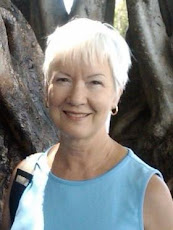

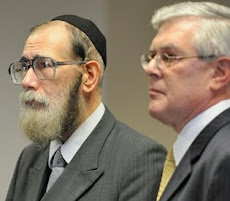

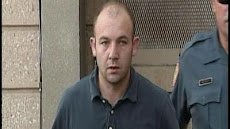









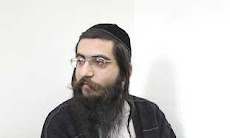





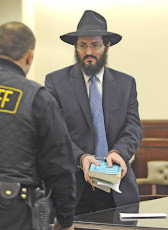














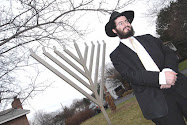




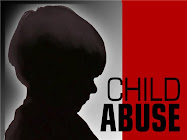



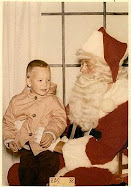









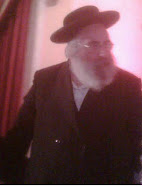



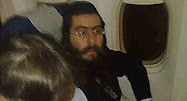




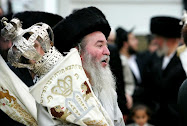


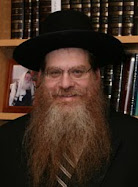












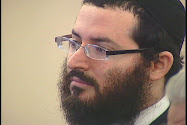
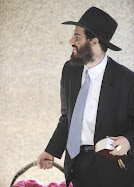
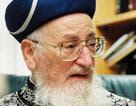









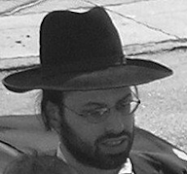

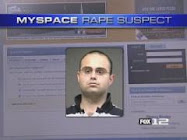









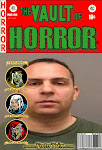












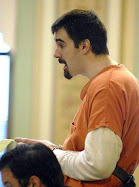


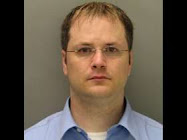


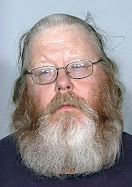

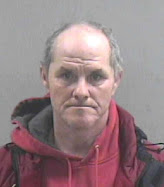
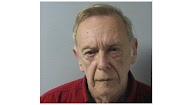
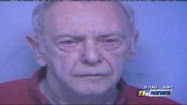













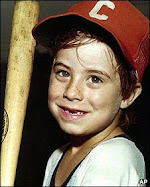

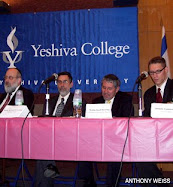














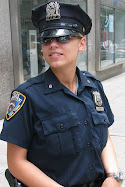


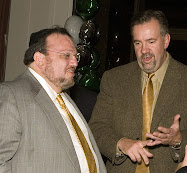
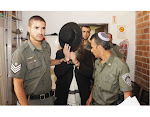



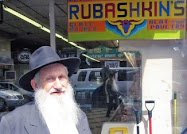















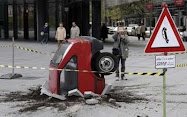










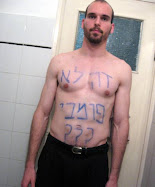
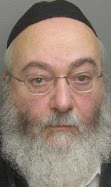












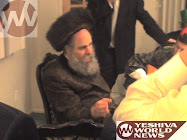






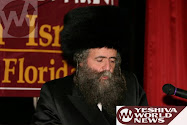


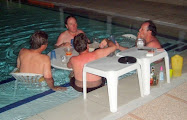

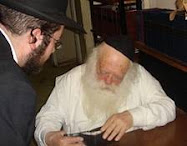

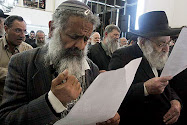
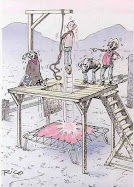
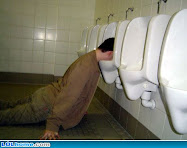



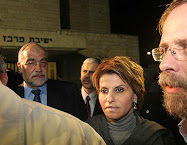
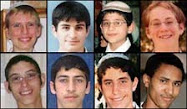
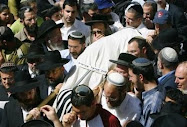
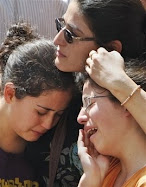
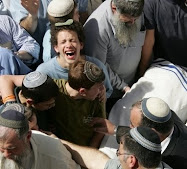
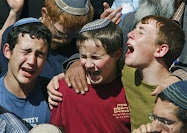
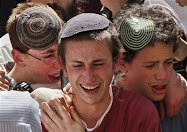
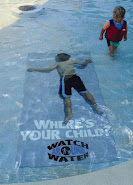

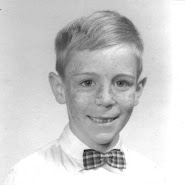







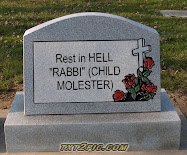
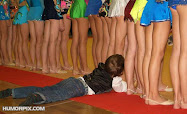







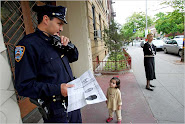















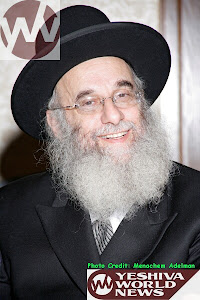
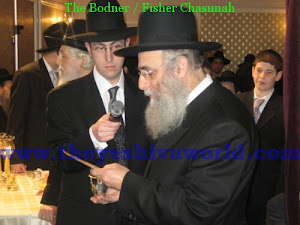
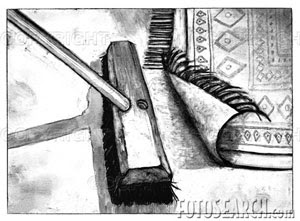
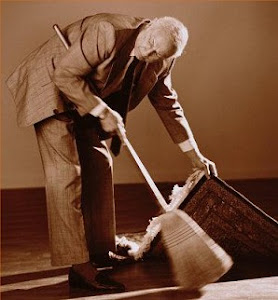









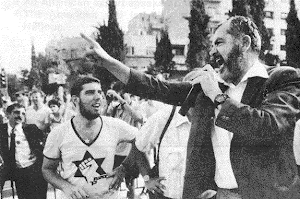
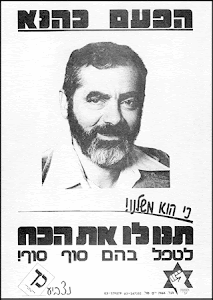
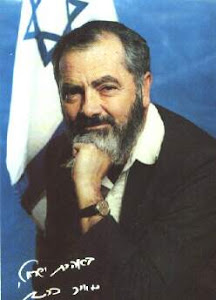
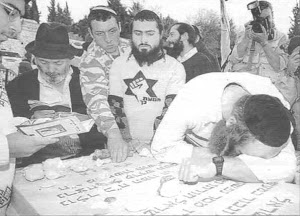
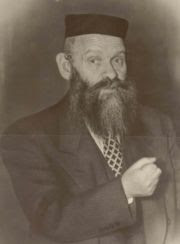




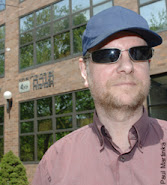


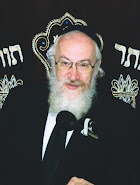





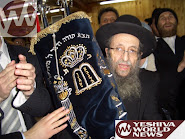

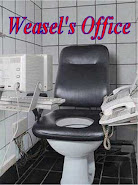

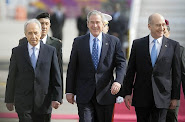
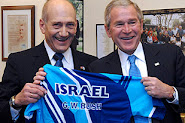
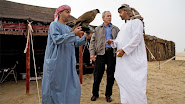


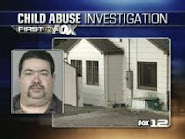
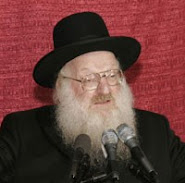

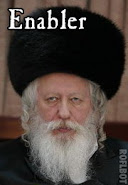













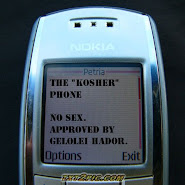





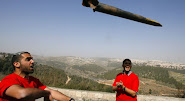
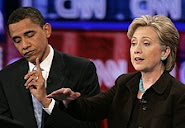


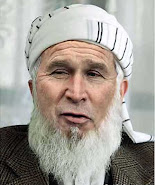









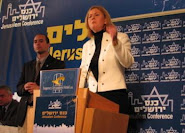


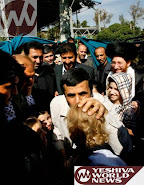
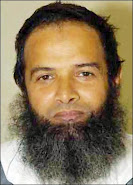


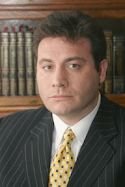


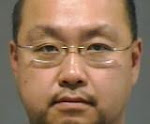
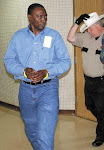

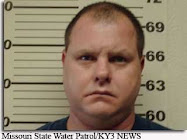



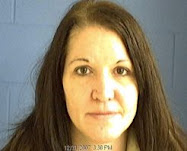
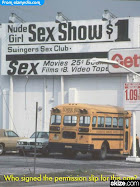

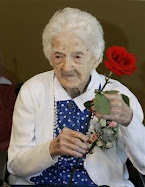
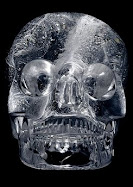
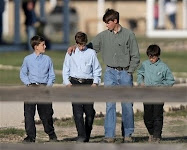



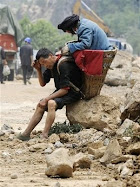



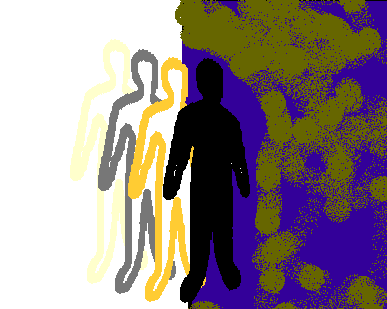

7 comments:
This is outrageous. Where is the justice? Can't the Israeli government do something? Can't the jewish orthodox community make life miserable for him? Wow. This is insane.
The Jerusalem Post Internet Edition
J'lem couple arrested for child abuse
Etgar Lefkovits, THE JERUSALEM POST Oct. 26, 2006
A Jerusalem couple was arrested Thursday for allegedly abusing their two young children severely over the last several months, police said.
The suspects, who were apprehended on Wednesday, are suspected of beating and otherwise physically abusing their 2-year-old boy as well as their seven-month old baby girl, Jerusalem police spokesman Shmuel Ben-Ruby said.
Both the father of the children, who is in his early 30's, and the wife, who is in her 20's, do not have a past criminal record.
The parents, who live in the southern Jerusalem neighborhood of Gilo, were arrested following complaints from neighbors and social workers.
They are also suspected of neglecting their children by not providing them with medical treatment for their injuries.
The suspects deny the accusations against them, and assert that the allegations stem from a dispute they have with their neighbors.
The children, who have been transferred to the care of the city welfare agency, have multiple bruises on their bodies, police said.
The parents were remanded in custody by the Jerusalem Magistrate's Court Thursday for four and five days each.
The suspects' names cannot be published due to the involvement of minors in the case.
Earlier this year, a 19-year old haredi man was arrested for allegedly beating his three-month old infant to death.
He is currently on trial for manslaughter.
===================================
CHILD PERV GLITTER IN AIRPORT ARREST
GRANT HODSON
DISGRACED pop star Gary Glitter was arrested yesterday as he tried to flee Vietnam to escape questioning about having sex with a child.
The child porn pervert - real name Paul Gadd - was on the run after he was found living with a girl of 14 in a sex resort.
The 61-year-old was stopped boarding a plane to Bangkok in Thailand. Police wanted to quiz him about sex with girls under 16.
The age of consent in Vietnam is 18 - and anyone caught breaking the law faces five years in jail. Glitter is thought to have shared his house in Vung Tau resort with several young girls. After he was traced there he fled on a motorbike, moaning to reporters: "Why do you keep hounding me? I'm not hurting anyone."
Vietnamese police found a girl of 15 in the house. The Foreign Ministry last week said Glitter had applied to stay permanently but warned of "strict legal measures" if he had broken any sex laws.
He was expelled from Cambodia in 2002 for sex with underage girls.
=============================================================================================================
AN ADULT never seems to get over having been molested as a child, but how bad must the horror be to have to deal with it again by learning that the actions of the uncle who hurt you 35 years ago led to a teenage girl killing herself with her father's gun?
That's what happened to "Desperate Housewives" star Teri Hatcher , who tells all in the upcoming Vanity Fair .
"This is something I've tried to hide my whole life," Hatcher tells VF , on newsstands tomorrow.
Hatcher says she learned in 2002 that a 14-year-old victim of her uncle, Richard Hayes Stone , had committed suicide.
Concerned that Stone would escape charges, Hatcher contacted prosecutors.
"I was just blown away by this young girl's pain," she says. "I thought, boy, that's really close to being me.
==============================================================================================
Burglar Saves Child From Perv
Quote:
Risking a life term to protect a child
CONVICTED BURGLAR TURNS OVER SEX-CRIME EVIDENCE FROM STOLEN PROPERTY
By Sean Webby
Mercury News
Rick E. Martin / Mercury News
Matthew Hahn speaks to a Mercury News reporter from inside Elmwood jail.Matthew Ryan Hahn glared in disbelief at the digital photographs of a man molesting a girl. She was only a year old, maybe 2.
The next thing to do would be obvious -- call police. But Hahn had been convicted of burglary more than once. And the memory card on which he discovered the photos came from a stolen safe.
Hahn knew being nabbed for another crime could make him a three-striker and send him to prison for life. But the images were burned into his mind. One photo showed some freshly overturned earth -- could the little girl already have been killed and buried?
After a sleepless night, Hahn took the card, placed it inside a pink change purse and attached a typewritten note. It said: ``Please remove this animal from the streets.''
He wrapped the whole thing in a package that he jammed into a random mailbox. It was addressed to the Los Gatos Police Department.
A year later, Hahn, 26, is in Elmwood correctional facility. Housed in the next building over, in protective custody, is John ``Robbie'' Robertson Aitken. The 22-year-old with no previous criminal record is charged with molesting his infant goddaughter -- his boss's child.
This is the story of two young Los Gatos men, both facing life in prison, and how one's crime may have halted the other's.
``There is honor among thieves,'' said Dana Overstreet, who is prosecuting Aitken. ``In my case, Hahn is a hero.''
Opening arguments are expected to begin early this week. Hahn is expected to be one of the prosecution's main witnesses against Aitken. And then, he too will go on trial.
Lives intersected
Their lives collided sometime after midnight on Feb. 28, 2005, in the darkness of a messy studio apartment on Wedgewood Avenue.
Aitken woke up with a start and turned on the light, according to court records. He heard noises, like whispers and a box being kicked. His Liberty gun safe was gone.
He called 911.
He told police that there was a handgun and some personal papers in there.
Both the responding police and Aitken's friends noticed that he seemed extraordinarily anxious about the theft, court records said. His boss's wife recalled that after the theft, Aitken told her: ``I feel like my life as I know it is over.'' When asked how she responded to that, the woman told Aitken: ``Oh, Robbie, you'll get over it.''
Suspect won't talk
Police say Hahn was probably the burglar that night or -- if not -- that he illegally got what was in that safe.
Hahn, who spoke with the Mercury News from Elmwood this week, refused to talk about where he got the memory stick or whether he burglarized Aitken's apartment that night.
But he described sliding the card into his computer and watching as the thumbnail photographs popped up on his screen. Among some shots of fishing and a minor car accident were others, different. He clicked on them.
``It seemed like it wasn't possible what I was seeing,'' Hahn said. ``I turned away and when I looked back, they were still there.''
There were about 10 photographs of a baby girl being molested by a man.
Hahn's stomach turned. He knew people who had been molested.
But what should he do with evidence which, after all, was stolen property? Hahn's criminal record meant his next conviction could mean life in prison. He fantasized about confronting this man himself. The man's name was among the papers in the safe.
Still ``it was not a matter of if, it was matter of when and how'' he would turn the photos in to authorities, he said.
He tossed and turned all night. The following morning, before the sun came up, he sent off his package -- and began to watch the newspapers.
Feared for child
When investigators got the package March 1 and saw what was in it, they moved quickly, fearing for the safety of the child in the photos.
Whoever had sent the package had written: ``Property of Robert Aitken, Wedgewood Drive.'' Wasn't that the guy who had just reported a burglary?
With the help of Overstreet and District Attorney Investigator Carl Lewis, detectives Dan Accardo and Mike Barbieri quickly came up with a plan. On March 3, they called Aitken. They had some follow-up questions -- could he come down? Aitken and the investigators talked for a while, casually. Then Lewis said he had something else they needed to talk about.
He opened up a leather folder. Inside was a blown-up photograph of Aitken's face from the memory card. Aitken knew immediately what it meant.
``He just melted into the chair,'' Barbieri said. ``It gave me goose bumps.''
Aitken put his hands over his face, according to court documents, took a deep sigh, and started talking:
``It was just, I, I, I -- it's stupid, you know? It was one day, you know being stupid. And you know, did it, and you know, halfway through it I was so upset at myself I just stopped and said `What am I doing?'. . . And you know, stopped and spent the next week just throwing up, all upset about it, thinking, you know, how could I do this to somebody I love?''
Aitken was talking about his love for the Los Gatos family whose daughter he had allegedly molested. Years before, he had started as an employee -- working at the computer store owned by the father.
But soon he was more family than employee. Aitken went with them to Tahoe, Hawaii and Italy. He babysat. They had made him the godfather of their beloved, first girl. They were so close that ``Robbie'' sometimes slept with the child so she could go to sleep.
Discovered dress
Police searched Aitken's apartment. There they found one of the little girl's dresses, stuffed in a bag inside a motorcycle helmet. A computer forensic search found thousands of pornographic images -- including more than 100 that were identified as illegal child pornography.
According to court documents, the child's mother went to Elmwood to ask Aitken two questions:
Was I there?
No, he said.
Did you sell the photographs?
No, he said.
Then she left.
The mother carefully watched her daughter for signs. Two weeks after her mother explained about her private parts, the child said that ``Robbie'' had touched her there.
``Robbie did a bad thing,'' she told her daughter, then 3. ``And he'll never be back.''
To face trial
Hahn was arrested April 8, 2005, on a warrant for unrelated crimes. Barring a plea deal, he will soon face trial on 12 counts of first-degree burglary, possession of stolen property and grand theft.
But none of Hahn's current charges is for stealing the safe. Police didn't even know he was the person who tipped them off to Aitken.
Until they arrested him, and he said: ``I gave you Robbie Aitken.''
It's unclear whether Hahn might receive some leniency for turning over the memory stick. His attorney, Allen Schwartz, said he plans to ask Overstreet to testify at Hahn's sentencing.
Hahn still can't get the images out of his head.
``They don't leave,'' he said.
He said he was reading psychology and philosophy books in jail, and is now reading ``Zen and the Art of Motorcycle Maintenance'' by Robert Pirsig -- a book that probes the fundamental questions on how to live.
Hahn said he often thinks about what he did with the memory card. He asks himself if it balances in some moral way against his own crimes.
But in the end, he said he is confused about his role in bringing an alleged child molester to justice.
``It was almost like fate,'' Hahn said. ``It was almost like it couldn't have happened any other way.''
http://www.mercurynews.com/mld/mercu...s/14523007.htm
COME ONE COME ALL TO YOB Alumnae special tribute for women and girls.
When: Sunday November 12, 2006
Time: 7:30 pm
Where: 1470 Ocean Pkwy/YOB Auditorium
Divrei Bracha: by Rabbi (thugmaster) Shloima Mandel
Topic: "Reliving our years with Rabbi (denier) Menachem Manis Mandel (baking and burning
in hell as of this writing).
Admission: By Donation.
I URGE ALL OF KLAL YISROEL WHO CARE ABOUT SAVING JEWISH NESHAMAS TO PROTEST OUTSIDE OF 1470 OCEAN PKWY AND SHOW THE WORLD - THE DISCPICABLE FRAUD THAT SHLOMO MANDEL AND YOB IS.
THIS DUMBASS SHLOMO MANDEL IS GIVING DIVREI BRACHA??? THIS MURDERER OF CHILDREN??? REMEMBERING MM MANDEL ANOTHER THUGGISH MURDERER???
COME WITH SIGNS AND PROTEST OUTSIDE YOB. THESE MANDEL LOSERS ARE PLAYING EVERYONE FOR FOOLS. SHOW THEM WHO THE REAL FOOLS ARE, BUNCH OF WEASELS AND MURDERERS THAT THEY ARE. (THE TWO STOOGE BROTHERS AND THEIR STOOGE FATHER).
Man files sex-abuse suit against priest
Superior bishop accused of inaction
BY KEVIN HARTER
Pioneer Press
A former altar boy filed a lawsuit Wednesday in Duluth accusing a retired priest of molesting him and accusing the bishop of the Superior Diocese of taking no action on several complaints about the priest.
Identified only as John Doe 113, the 55-year-old Superior man accused the Rev. Edward F. Beutner of sexually abusing him as a teenager. Filed by St. Paul attorney Jeff Anderson, the suit also alleges several complaints made to Bishop Raphael Fliss about Beutner in the past few years were ignored.
The suit seeks more than $50,000 in damages.
Fliss and diocese spokesman the Rev. Philip J. Heslin did not return messages Wednesday seeking comment. Beutner, 66, who is believed to be living in River Falls, Wis., could not be reached for comment.
The Superior man was an altar boy at Superior's Cathedral of Christ the King in the mid-'60s and "came to know, admire, trust, revere and respect Beutner as a priest, teacher, counselor, spiritual adviser and religious instructor," according to the lawsuit filed in St. Louis County District Court.
His lawsuit alleges that Beutner, then serving at the cathedral, "engaged in unpermitted, harmful and offensive sexual contact" with the boy, who was about 15 years old in 1965 or 1966, during a trip to Minnesota, which is why the lawsuit is being filed in Duluth.
Anderson, nationally known for representing victims of clergy sexual abuse, said a similar suit would have been filed in Superior, but a 1995 state Supreme Court decision has made such cases nearly impossible in Wisconsin.
According to the lawsuit, the former altar boy "suffered a traumatic amnesia, or memory repression, of the sexual abuse" and had no memory of it until about 2005 or 2006 while in psychological treatment.
The suit also alleges Fliss and other church officials "continue to attempt to cover up Beutner's abuse of children" despite three other reports from individuals who say they were molested as children by the retired priest.
John Doe 113 contacted Fliss six months ago after learning Beutner still was active in the priesthood and became concerned. About the same time, he attended a reunion and met three of his classmates who said Beutner also had abused them, the lawsuit said. All four then went to see Fliss, Anderson said.
The bishop told them the statute of limitations had passed and they couldn't bring any action against the church. "Which is not what they wanted," Anderson said. "They wanted him to do something."
The bishop did tell the men he would look into their claims, but Anderson said nothing was done.
Beutner is now retired, but he continues to be active in church-related events and retreats, Anderson said.
Kevin Harter can be reached at kharter@pioneerpress.com or 800-950-9080, ext. 2149
------------------------------------------
Diocese of Forth Worth settles sex-abuse lawsuit
FORT WORTH — The Catholic Diocese of Fort Worth has settled a lawsuit filed by 11 men who accused an Arlington priest of sexually abusing them while they were serving as altar boys.
All the terms of today's settlement will not be revealed. But it includes at least $1 million and requires the diocese to pay for one year of counseling for each of the men, attorney Tahira Khan Merritt said in today's online edition of the Fort Worth Star-Telegram.
"I think that the closing of this part of the case will bring some closure to the guys," said Merritt, who represented the men.
The 11 men accused the Rev. James Reilly of fondling and kissing them while serving at St. Maria Goretti Catholic Church in Arlington. Reilly, who led the parish from November 1967 to September 1987 and was an instructor at Holy Trinity Seminary in Irving, died in 1999 from complications of Alzheimer's.
As part of the settlement, the diocese will remove Reilly's name from buildings and plaques at the parish. A trust fund worth about $600,000 that Reilly established for the diocese will be used to pay for counseling the sexual abuse victims of Fort Worth clergy, Merritt said.
Bishop Kevin W. Vann, who took over the diocese's leadership last year, will say Mass at the parish acknowledging the abuse and apologize to the victims, Merritt said.
Vann said he has been working to coordinate a Mass of Reparation at St. Maria Goretti Church to ask God's forgiveness and to publicly acknowledge the crimes against the victims.
"It is absolutely necessary that we apologize in a public manner for these actions by James Reilly which have brought so much turmoil into the lives of these men," Vann said in a statement today.
Five of the men live in Tarrant County and the others live in Harris and Travis counties, Virginia and Washington.
Their lawsuit also alleged that Bishop Joseph P. Delaney, who died in 2005, "spirited Reilly out of Texas" in 1987. It contends Delaney had knew Reilly was a sexually predatory cleric.
You think "Rabbi" Shlomo Mandel, "Rabbi" Yehuda Nussbaum, and Yehiva of Brooklyn can ever muster enough decency to apologize to their victims whom they scarred for life? Think again. Don't hold your breath over it. The Catholic Church has at least apologized for their pedophile Priests, and it is time Yeshiva of Brooklyn and Yeshiva Torah Temima apologize for their pedophile and sadistic Rabbi's.
SAN SALVADOR, El Salvador (Reuters) - The Catholic Church in El Salvador begged forgiveness on Wednesday for a priest who raped an altar boy and now faces charges he abused other children.
The priest, Jose Daniel Rivas, 60, will face a preliminary hearing into accusations that he sexually assaulted two children and police are investigating three other possible cases, prosecutors said.
The priest was sentenced on Tuesday for raping an 11-year-old boy last year in the town of San Cristobal, east of the capital.
"This situation saddens us. We have to ask God's forgiveness and hope this never happens again," San Salvador Archbishop Fernando Saenz told the televisor network Telemundo.
Rivas sexually assaulted the altar boy last May when a group of children spent the night in a church building in San Cristobal, according to the court sentence.
Rivas is the first Catholic priest to be sentenced to prison in El Salvador for child abuse, although others have faced charges. The court also ordered Rivas to pay $500 in damages to the boy's family.
In November 2003, another priest was forced to pay $25,000 to a 31-year-old man for abuses suffered when he was a child.
Hundreds of lawsuits have been filed across the United States since a priest abuse scandal broke in 2002. U.S. church documents have shown that some bishops shuffled priests with histories of abuse between parishes or sent them for counseling rather than reporting them to police.
--------------------
Pastor arraigned in Missouri church sex abuse case
Associated Press
PINEVILLE, Mo. - A pastor accused in a case of alleged ritual sex abuse by several leaders at two southwest Missouri church communes will have a pretrial conference next month after pleading not guilty to abusing a girl from his congregation.
George Otis Johnston, 63, was arraigned Tuesday on nine felony counts of child molestation and statutory sodomy. Those charges are split between eight counts for acts alleged to have happened in Newton County and one count from neighboring McDonald County. The abuse was alleged to have begun when the girl was 11 and lasted until she was 15.
Johnston, pastor of Grandview Valley Baptist Church North in rural Granby near Neosho, has also pleaded not guilty to eight similar counts in Newton County of abusing the girl's younger sister over an eight-year period beginning when she was 8.
The older sister is now 20. The younger sister is now 17.
Johnston has ties to Grand Valley Independent Baptist Church in McDonald County. That church's pastor, the pastor's wife, two deacons and one of the deacon's wife are facing charges of child sexual abuse and child endangerment. Those five have also pleaded not guilty.
Prosecutors allege the church leaders used their religious authority to take advantage of the victims, sometimes as part of a ceremony or ritual.
Johnston is scheduled to go on trial February 23 in the case of the younger sister.
On Tuesday, Circuit Judge Tim Perigo set a Dec. 4 pretrial conference in the Newton County case involving the older sister and Jan. 16 for a pretrial conference on the McDonald County charge involving her.
November 20, 2006
Clergy Sex Abuse: Enough Is Enough!
By Founder, www.catholics4justice.com
Intervention is Needed by Religious, Government & Political Leaders. The letter below was sent to Cardinal Roger Mahony's legal advisors with hope that the protections of children, adults, families and employees will take precedent over the Church's image and financial portfolio. *******************************
November 19, 2006
(Via Email)
Cardinal Roger Mahony
Catholic Archdiocese of Los Angeles
c/o J. Michael Hennigan, Esq.
c/o Albert P. Ballog, Esq.
Re: Secrecy and Deception -- Protections of Children
Posttraumatic Stress Disorder
Dear Messrs. Hennigan and Ballog, as legal representatives for Cardinal Roger Mahony and the Los Angeles Catholic Archdiocese:
As cradle a Catholic with 4 children who attended Catholic schools, it is hard to accept that precious children and families continue to be victims of sex crimes and failures to protect by employees supervised by you and your legal advisors. The recent allegations at Daniel Murphy Catholic High School are a disgrace! Nothing has changed since the clergy sex abuse crisis erupted 5 years ago.
How many more children and families will be destroyed because your employees and legal advisors refuse to place the protections of children BEFORE your personal image and the Catholic Church?
How many employees supervised by you and your legal advisors will face the wrath of the influences of the Catholic Church in a court of law, for reporting violations of the law?
ENOUGH IS ENOUGH!
* Are you aware of the life-long effects of Posttraumatic Stress Disorder that plagues each and every child, adult and family that has survived horrific clergy sex abuse crimes or the wrath of the influences of the Catholic Church in a court of law?
* Why do you lie to the public?
* Why do you lie to your employees as mandated reporters?
* Why do you lie to precious children and their families?
* Why do you continue to re-victimize clergy sex abuse victims and their families as evidenced in the recent allegations concerning sex abuse crimes committed by an employee under your supervision at Daniel Murphy Catholic High School?
In the interests of public safety and justice, the ongoing political, religious and law enforcement influences that have aided the Catholic Church in covering up sex crimes and other violations of the law, must stop NOW!
As evidence of the ongoing failures to protect children, please refer to the attached .pdf copy of a letter written by two Los Angeles County Sheriffs in support of the dismissal of felony gun charges that were filed against the former principal's son at Santa Margarita Catholic High School in April 2001, R.J. Hemenway. In the midst of the clergy sex abuse crisis, political and government leaders assisted the Catholic Church in facing the consequences of violating child protection laws and the Gun Free Schools Act of 2000.
Yes, the Sheriff's letter was successful and the principal of a prominent Catholic high school in Orange County was transferred to Bishop Amat Catholic High School, one of the schools under your supervision in the Los Angeles Catholic Archdiocese. Sound familiar?
Unfortunately, there is something seriously wrong with the letter submitted by two Los Angeles County Sheriffs in support of dismissing felony gun charges against a prominent Catholic school principal's son -- the sheriffs misspelled "Hemingway" in the letter when the correct spelling is "Hemenway". Who were the government officials responsible for verifying the legitimacy of this letter?
* Does this have anything to do with the fact that legal advisors for the Los Angeles Catholic Archdiocese, Albert P. Ballog, Daniel R. Sullivan, Esq. and Michael J. Peffer, all members of the firm of Sullivan & Ballog, simultaneously represent the Catholic Diocese of Orange and the OC Sheriff's Department?
* Does a legal conspiracy exist? Is there a self-insured legal malpractice fund that employs and protects the Catholic Church from accountability for destroying the lives of children and families?
Please stop the games -- children are not safe! Nothing has changed since the clergy sex abuse crisis erupted 5 years ago. Due process of the law, the protections of children and those who protect them as mandated reporters are non-existent in the business and employment practices of the Catholic Church. Without justice, there will never be peace and without peace, we might as well laugh at each and every child protection law that the Catholic Church and its legal advisors, continue to manipulate for personal and financial gain.
Respectfully submitted,
Debby Bodkin, Founder
www.catholics4justice.com
cc: Orange County District Attorney
Los Angeles District Attorney
State Bar of California
California Department of Justice
Authors Website: www.catholics4justice.com
Authors Bio: As an amateur writer, my passion for the courage of clergy sex abuse victims has changed my life direction in many ways. We must never forget that our country's freedom of religion does not include sex abuse crimes, cover-ups and failures to report sex abuse to law enforcement. Your input is important and valued -- please listen to the personal stories of clergy sex abuse survivors - write to your state legislators and Church leaders expressing your views and concerns. May God Bless you always.
CTV journalist goes public with story of sex abuse
Updated Tue. Nov. 21 2006 11:27 PM ET
CTV.ca News Staff
CTV journalist Kimothy Walker is speaking out for the first time about being sexually assaulted nearly thirty years ago.
Walker, a popular television anchor and reporter for CTV Ottawa, was sexually assaulted in 1977 by a friend's brother. She was only nine.
She had been sleeping over at her girlfriend's house when the 19-year-old brother awakened her in the middle of the night, Walker recounted in a story that appears in Tuesday's Ottawa Sun.
"He woke me up in the middle of the night while I was sleeping there and sexually assaulted me. It's the first time I've actually said that publicly and I never told a soul," she told CTV's Canada AM.
"I didn't know what it was. I didn't have the language to describe it. I didn't tell my parents and I just kept it inside for a very long time," she said.
She was terrified by the horrifying ordeal, she recounted.
"It was only after it was over that I ... snuck a peek over the side of the bed and I watched him crawl away on his hands and knees," she said.
"And even at that age ... I thought 'you're such a chicken.' But I didn't really know what he had done."
Aside from trying to tell her friend, who admitted her brother had done the same thing to her, Walker kept quiet for years.
As a teenager, Walker struggled with her self-esteem. It was only than that she decided to tell her parents and her best friend about her ordeal.
But she wasn't ready to take action at the time.
"It wasn't until my early 20s that I did something about it and when I did file a complaint, we found out that he was facing charges of sexually assaulting his daughters."
Walker agreed to testify and confront the man who had robbed her of her innocence. But she would never have that chance.
A few months after she filed a complaint, her abuser was found dead in a field in an apparent suicide.
Walker, 38, decided to make her story public one night when she was helping her daughter fall asleep.
It was then that she began reliving the sickening memory of being sexually assaulted at the same age her daughter had turned just a couple of weeks earlier.
"I was watching my daughter sleep and I thought, 'What if this happened to her?'" she said.
"And it was in that moment that I realized that I have a public voice and I haven't used that public voice because there is shame associated with being the victim of a pedophile," she said.
It was after speaking to her friend that worked at the Ottawa Sun that Walker realized it was time to come forward with her story.
Walker, who says her dream is to remove the stigma attached to sex assault victims, says silence is part of the problem.
"People whisper when they say pedophile or survivor of a pedophile. They whisper it.
It's like those of us who have been through it have something to be ashamed of and, you know, logically, none of us would blame a child for being a victim but I think because there's a sexual component to it, it still makes people uncomfortable," she said.
"I look forward to the day that we can all speak openly about it because I think that's what gives us the power to fight for change and I think the changes are required because we know that pedophiles are hunting children on the Internet.
But she says that unless the victims are no longer invisible, it will be impossible to win that battle.
Post a Comment